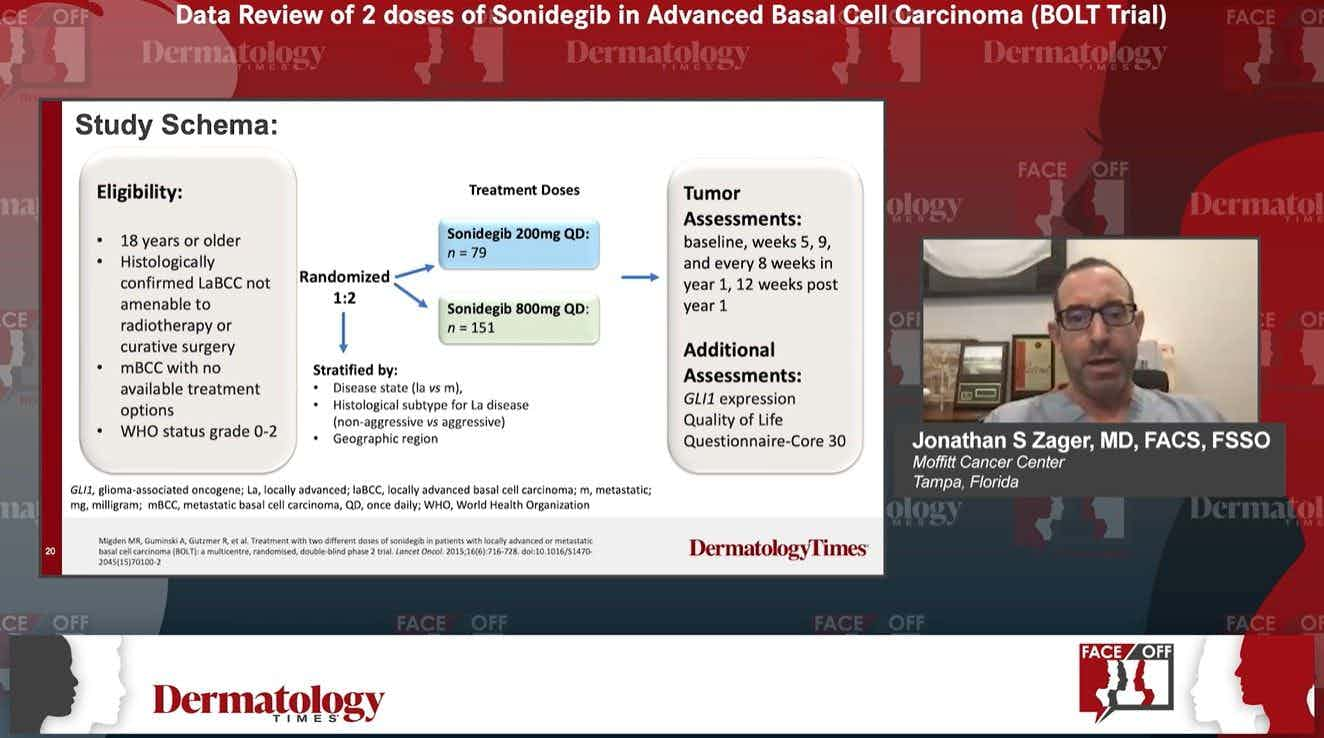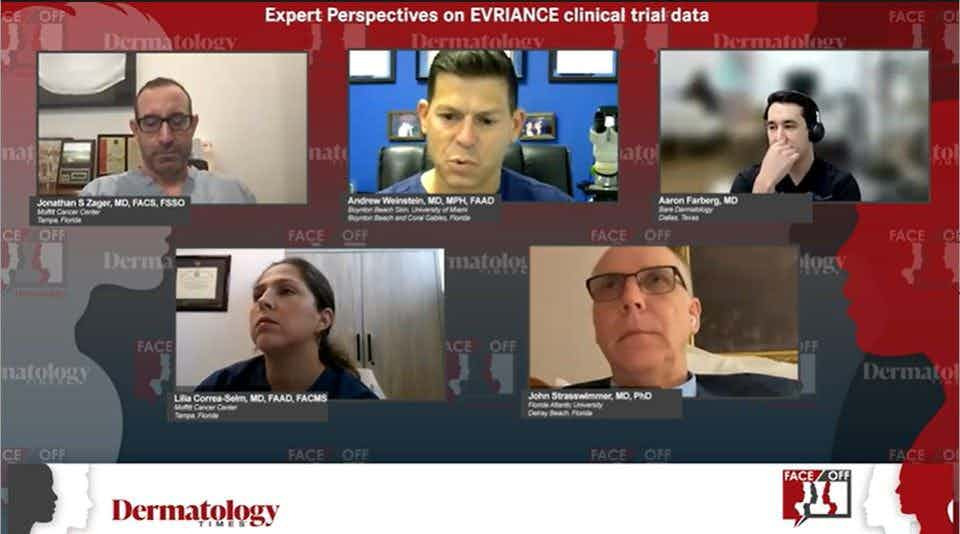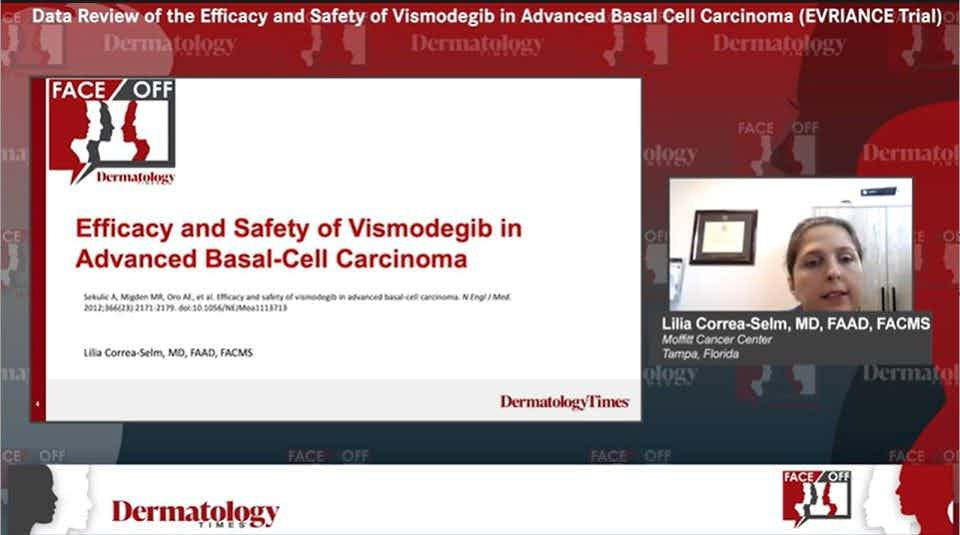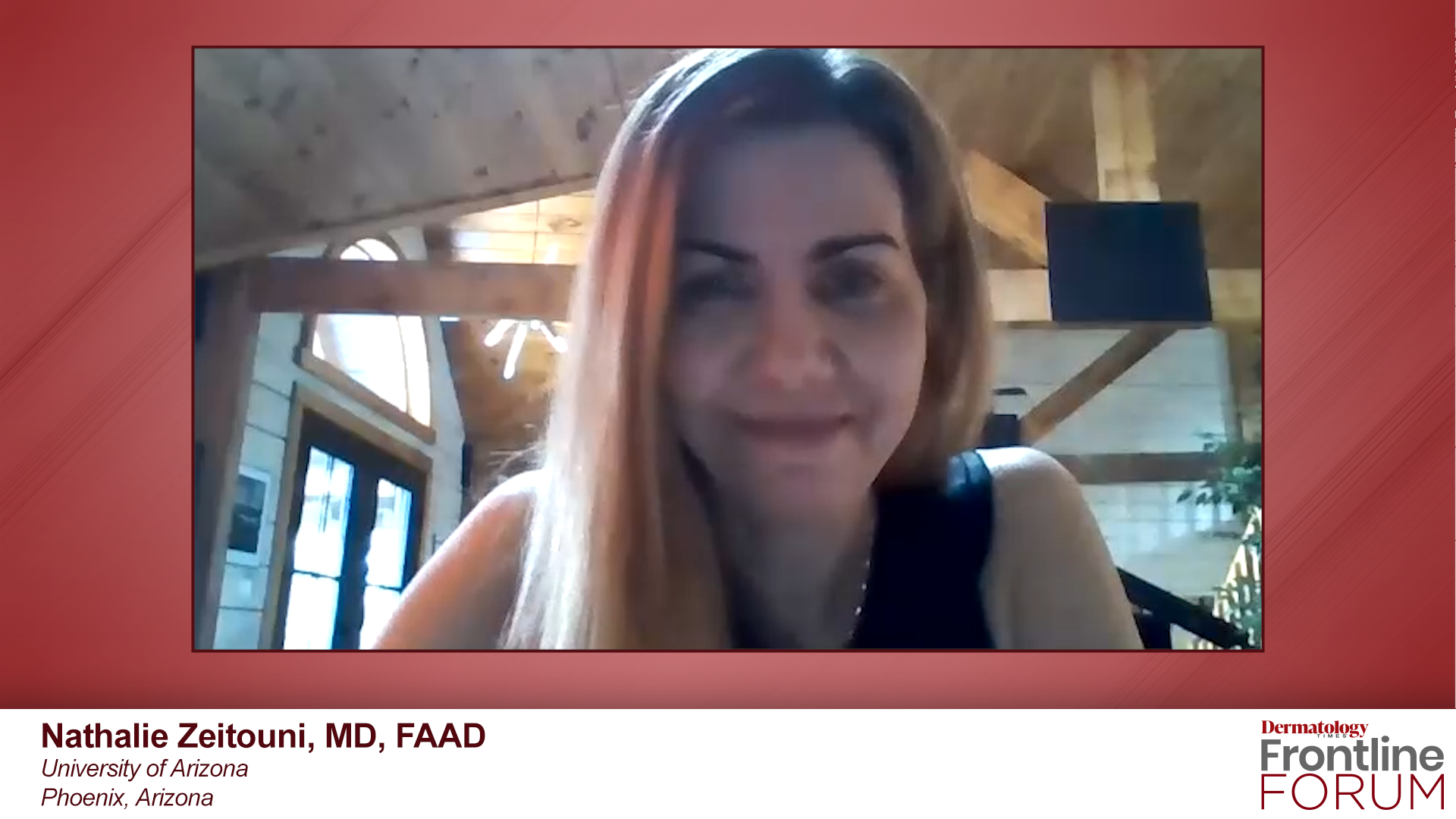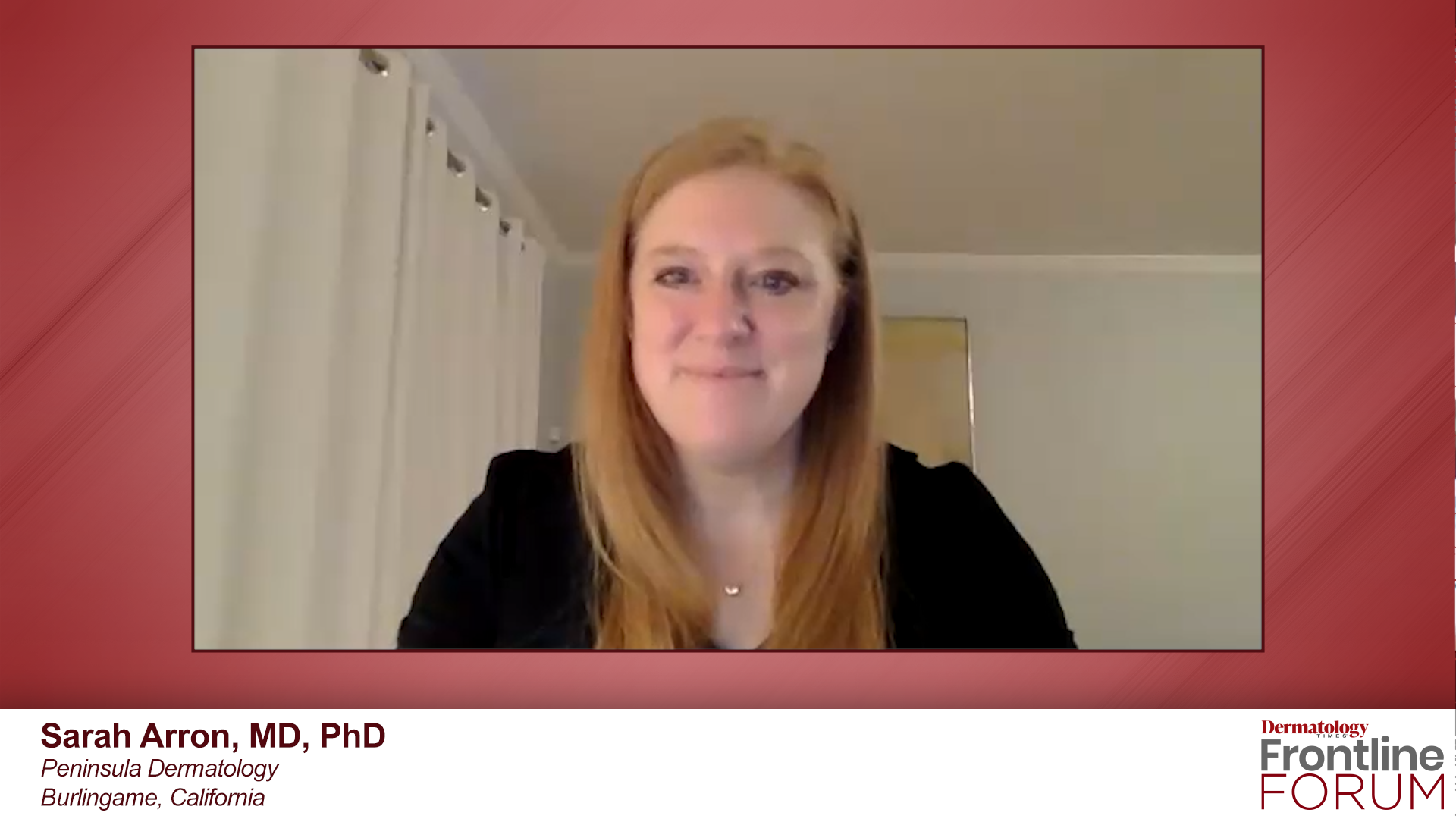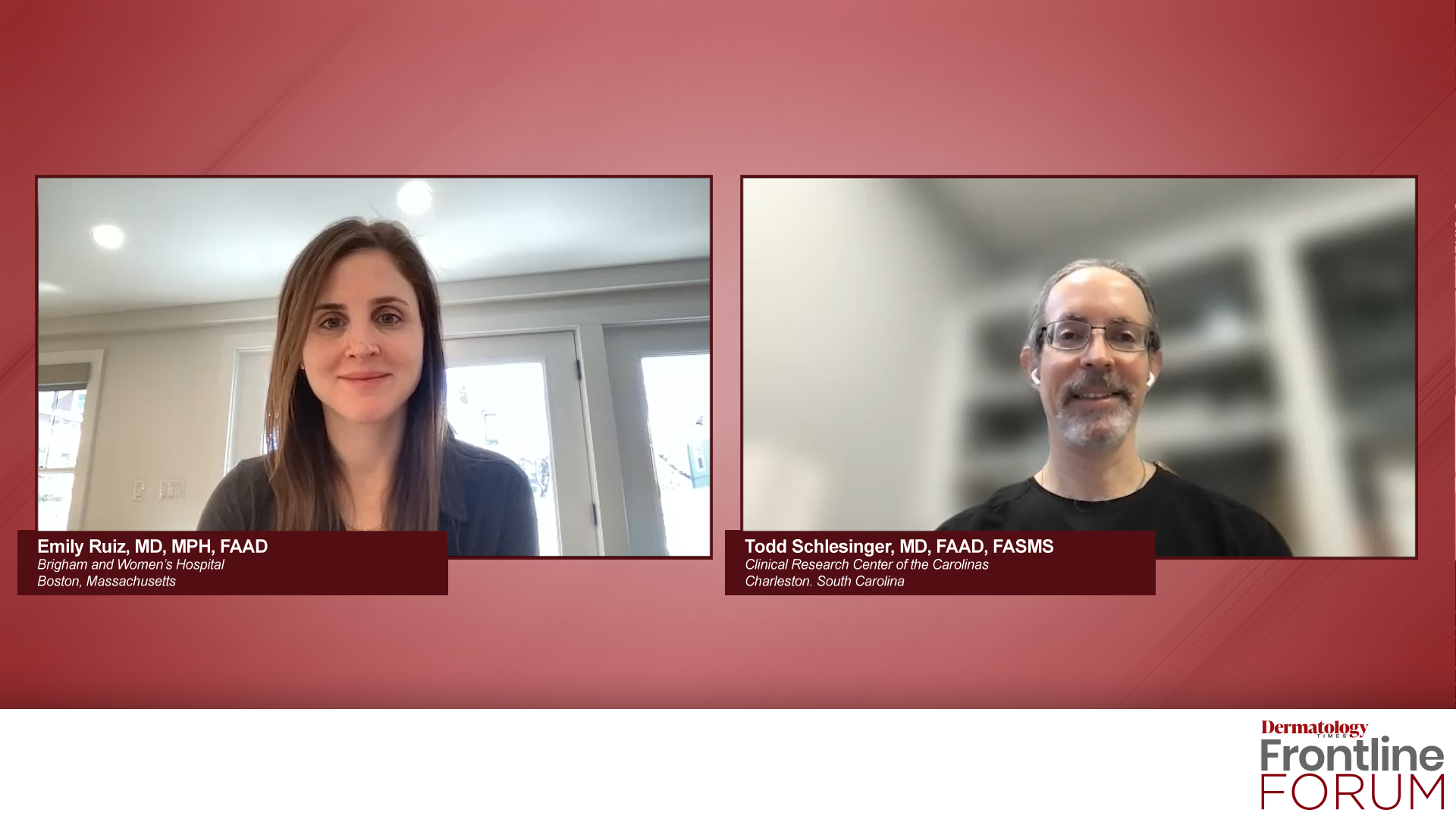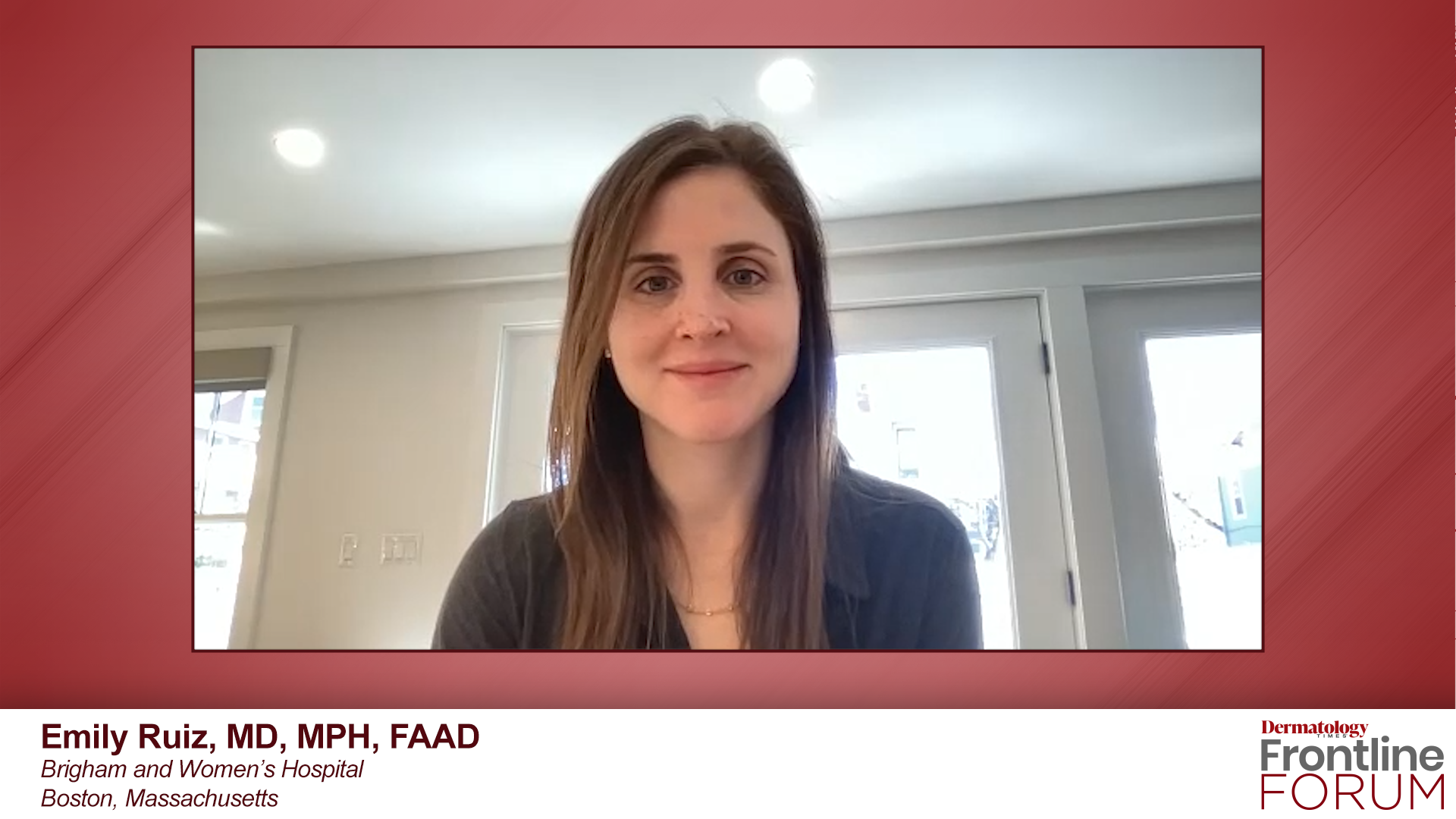- Acne
- Actinic Keratosis
- Aesthetics
- Alopecia
- Atopic Dermatitis
- Buy-and-Bill
- COVID-19
- Case-Based Roundtable
- Chronic Hand Eczema
- Chronic Spontaneous Urticaria
- Drug Watch
- Eczema
- General Dermatology
- Hidradenitis Suppurativa
- Melasma
- NP and PA
- Pediatric Dermatology
- Pigmentary Disorders
- Practice Management
- Precision Medicine and Biologics
- Prurigo Nodularis
- Psoriasis
- Psoriatic Arthritis
- Rare Disease
- Rosacea
- Skin Cancer
- Vitiligo
- Wound Care
Opinion
Video
Management of Newly Diagnosed Patients with Basal Cell Carcinoma (BCC)
Sarah Arron, MD, PhD, and Nathalie Zeitouni, MD, FAAD, discuss their approaches to managing patients with newly diagnosed basal cell carcinoma and highlight the negative consequences of a delayed diagnosis.
Nathalie Zeitouni, MD, FAAD: Welcome, everyone. My name is Nathalie Zeitouni. I’m a Mohs surgeon in Phoenix, Arizona. And Dr Arron and I are going to be having a conversation regarding management of basal cell carcinoma. So, Dr Arron.
Sarah Arron, MD, PhD: Hello, I’m Sarah Arron. I’m a dermatologist and a Mohs surgeon in Burlingame, California, and I’m delighted to chat with you today about basal cell carcinoma, Dr Zeitouni. I wanted to start by asking about your approach to newly diagnosed basal cell carcinoma and what options you discuss with your patients.
Nathalie Zeitouni, MD, FAAD: I think that’s a great question. When a patient presents to our office or to our clinic, the first thing I usually go over is the diagnosis. What it means to have a basal cell carcinoma, so that the patient fully understands the diagnosis, the prognosis of the basal cell carcinoma. Then we go into the management, and I usually start with surgery. Most of the patients that are being referred to me are referred for Mohs surgeries. So is this an appropriate patient for Mohs based on the AUC [Appropriate Use Criteria]? Then I will also discuss perhaps some topicals as well if it’s a basal cell carcinoma that’s appropriate for some topicals. I do discuss radiation therapy and I do discuss systemic therapy if appropriate, again depending on the patient and depending on the tumor that we’re given. How about yourself? What are the approaches you handle?
Sarah Arron, MD, PhD: I do much the same. Again, from early superficial basal cells that can be treated with topical agents, all the way to basal cell cancers that are very extensive or have maybe recurred following multiple surgical interventions where we’re thinking about radiation or a systemic treatment. Sometimes patients are coming in with a delayed diagnosis. They don’t realize they’ve had a basal cell or they’ve had other health issues or obstacles to care for. Have you seen patients with complications of a delayed basal cell diagnosis?
Nathalie Zeitouni, MD, FAAD: Yes. Unfortunately, that can happen for a variety of reasons, either they may not have had insurance and they’re concerned or they’ve had other things happen in their lives, which can happen. I’ve had 1 patient who her dermatologist has passed away, so she couldn’t find another dermatologist. It was a couple years before she circled back with one of us, and so there was this delay again in the diagnosis of the basal cell carcinoma. Fortunately, basal cell carcinomas, they grow slowly, but they do grow and sometimes they’re in areas that are hard for the patients to access or see on themselves. So, before you know it, they become more advanced, unfortunately. So definitely having a delay in diagnosis, there’ll be that progression. Most of the cases that we see are amendable to surgery and we do the Mohs surgery. But sometimes, that said, that delay in diagnosis, patients will present with more advanced tumors.
Nathalie Zeitouni, MD, FAAD: What’s your experience with delay in diagnosis?
Sarah Arron, MD, PhD: I’ve had similar cases, particularly patients who have a lot of anxiety about medical care in general. Patients where the tumor gets quite large or symptomatic before a family member really pushes them to come in. Of course, we do have options, but when these tumors become locally advanced, they can be more complicated to treat.
Transcript Edited for Clarity
Newsletter
Like what you’re reading? Subscribe to Dermatology Times for weekly updates on therapies, innovations, and real-world practice tips.


